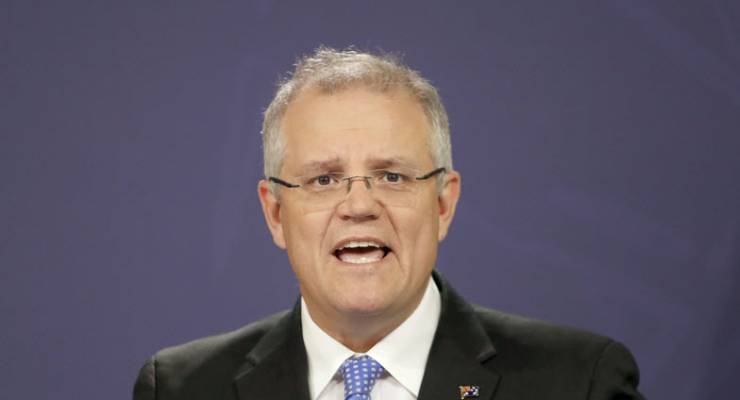
Can you afford to miss Crikey’s in-depth Budget Edition email? If the answer is a resounding no, then keep an eye out for our members-only budget night email. We’ll be crunching the numbers and translating the spin to give you our outsider view from inside the lock-up.
In the lead up to the federal budget next week, Crikey is publishing various contributions on theme of “fantasy budget”. The first is from think tank Per Capita.
The 8th Annual Per Capita tax survey, which came out on Tuesday, shows that a majority of people earning over $80,000 a year think they are paying too much tax. At the same time, most people think big business and high-income earners aren’t paying enough.
A majority of respondents also want to see more government spending on health, aged care, education and social security. And almost two-thirds don’t support the tax cut for big business that the government is determined to push through the senate next week.
This shows that Australians would likely be open to changes in the tax system to make it more progressive — to increase taxes on the rich, and redistribute spending to those in need.
So Per Capita’s 2018 “fantasy budget” would, like last year, start by addressing income tax scales.
- Raise the tax-free threshold to $25,000
- $25,001 to $50,000 – cut the rate from 19c to 17c
- $50,001 to $100,000 – leave the rate at 32.5c
- $100,001 to $160,000 – raise the rate to 40c
- Edge the top rate back to income above $160,001 (from $180,000 now)
These changes would be broadly revenue neutral, with the cost to the budget at the low end picked up by extra tax at the high end. They would encourage growth, as low-income earners are more likely to spend extra dollars, and there would be no need to submit a tax return when earning under $25,000 per annum. We’d also scrap the company tax cut for big business.
The fantasy budget would see the government:
Unemployment
- Raise the rate of Newstart by $50 per week and index it to wages effective July 1 2018. Deloitte has costed this at $3 billion. It would have an immediate stimulatory effect on the economy and would actually help unemployed people to find work.
- Include labour under-utilisation as an explicit objective for RBA policy, in concert with the existing inflation target, and set an unemployment target of less than 4% over the forward estimates.
- End work-for-the-dole and fund the trial of a job guarantee scheme in Tasmania.
Negative gearing and Capital Gains Tax Concessions
- Limit new applications for negative gearing to investment only in newly constructed affordable housing, to address the rental affordability crisis in our capital cities. By also halving the capital gains tax concession to 25%, the revenue effect of these measures would compound over time.
Education
- Implement a uniform resource rent tax and use the additional revenue to create a sovereign wealth fund to return school funding to original Gonski 1.0 levels.
- Increase federal funding of TAFE and vocational education, including trades skills development and reverse the privatisation of VET.
- Commit to funding 15 hours per week of early childhood education for all three year olds, and 22 hours per week for all four year olds, regardless of the workforce participation of their carers.
Retirement incomes
- Further cut superannuation tax concessions to prevent high income earners using the super system as a tax haven. Introduce a government co-contribution to super balances for any individual reaching the age of 40 with a balance less than 40% of the median.
- Increase the maximum rate of Commonwealth Rent Assistance to reduce the gap between age pensioner home owners and renters, and index it to housing costs instead of CPI to reflect increases metropolitan rents.
- Provide nationally standardised, Medicare-funded dental care to all age pensioners.
Carbon pricing
- Introduce a tax and dividend system where all proceeds of the tax are distributed equally among citizens. This is a progressive measure that would create a price signal with minimum economic disruption.
Cost
A preliminary costing of this fantasy budget is broadly budget neutral — that is, the proposed spending increases are paid for by proposed revenue gains. And, contrary to the views of the majority of Australians as found in our Tax Survey, Australia is actually a relatively low-taxing, small-spending nation, ranking 29th out of 36 OECD countries in size of government, as measured as the tax share of GDP.
*Emma Dawson is Executive Director and Stephen Koukoulas is a research fellow at Per Capita.







As a “price signal”, a carbon tax would press energy users to choose non-carbon alternatives — such as despatchable renewables and nuclear. But the alternatives must be nationally available before the intended industrial disruption can take place.
As tax on a bad, carbon tax is clearly Government revenue, straight into coffers. Public distribution of the proceeds from fossil emission would undermine public resolve to stamp it out.
Increasing rent assistance is a really important move to help reduce homelessness I would have thought, good on you for raising this as it seems to mostly fly under the radar.
Sounds good to me.
How about death duties, which many countries have; a natural fit to help fund aged care.
Would you like to pay less tax? Yes.
Would you like others to pay more? Yes.
Hardly a shock result. Sounds more like lazy capitalism than much else.
Toby Ralph